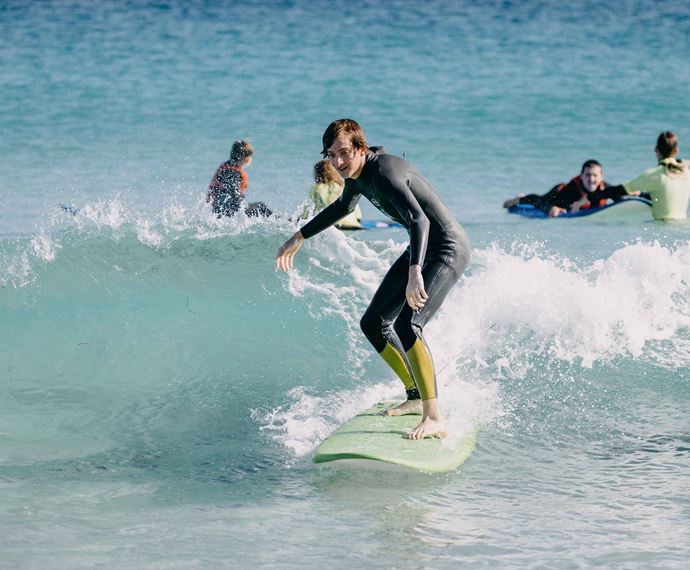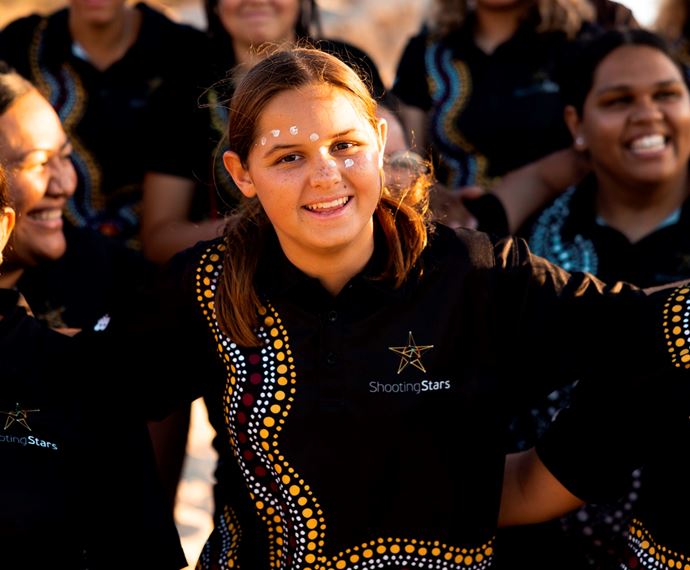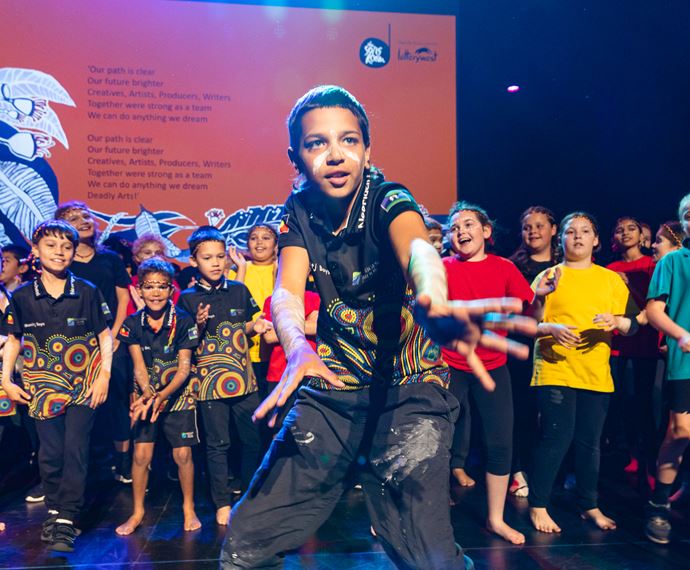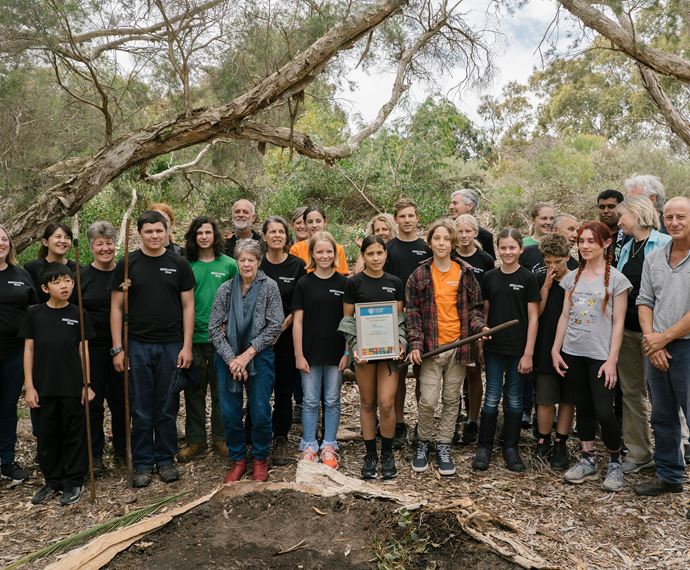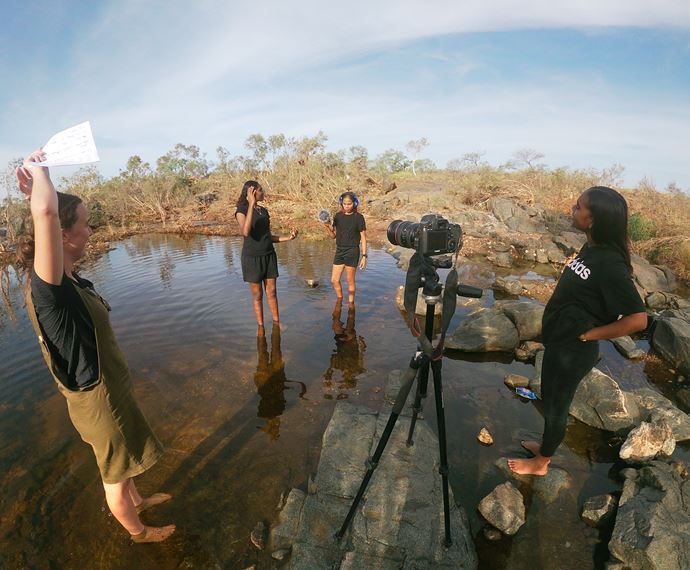Building community connection with Denmark FM
Denmark Community Resource Centre was established in 1996 to provide access to services and information that would strengthen community connections and wellbeing. In 2021, the Centre established Denmark FM, a volunteer run community radio station, to celebrate the diverse community and share stories, talents, music, and locally relevant news.
Towards equipment to support the activities of a community radio station, which will raise community connection and participation.
Denmark Community Resource Centre Inc
6/9/2021
$48,953
Lotterywest
$46,953
Great Southern
Young People (aged 13- 17), General Community
- Creating a program that develops radio production, communication and planning skills in young people.
- Building confidence in students and teachers.
- Sharing and celebrating the stories of young people in the community.
- Being flexible and creative in the use of resources to contribute towards project outcomes.
- Getting project partners on board early enabled successful delivery and laid a strong foundation for continued program development.
- Identifying fit-for-purpose equipment that fit the specific requirements of the project.
- Working with schools during COVID-19 restrictions limited Denmark FM volunteer access to schools.
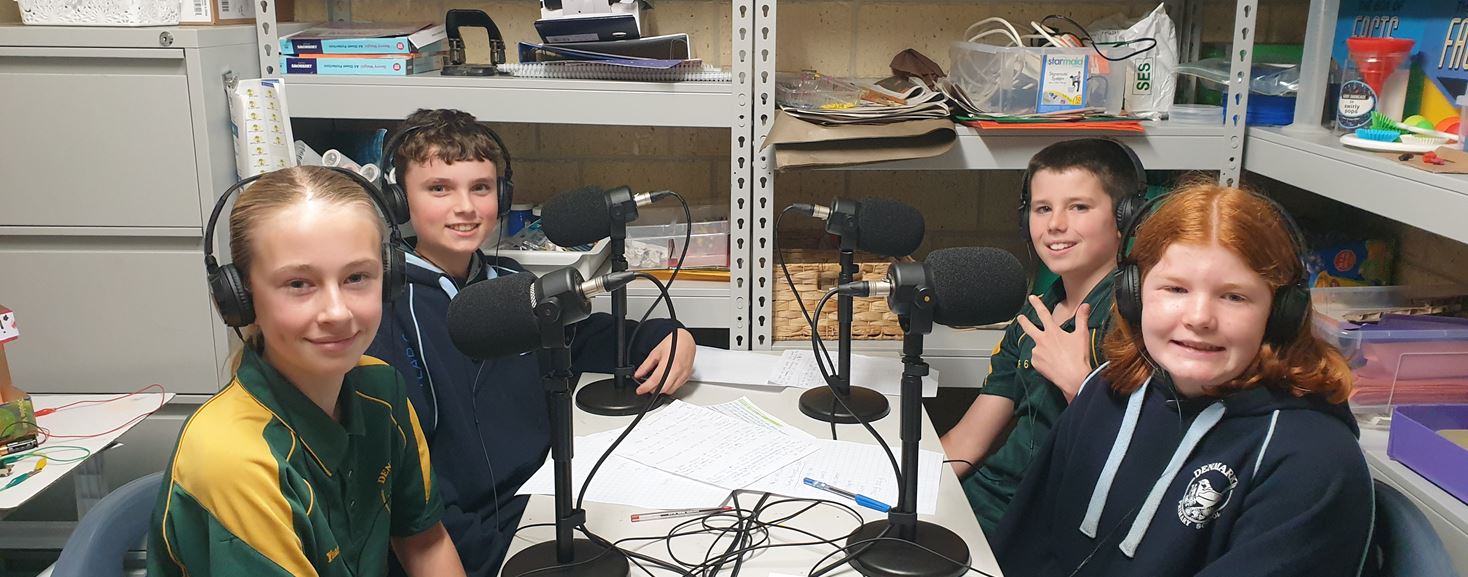
Opportunity
Each week, almost five million Australians tune in to more than 450 not-for-profit, community-owned and operated radio stations across the country [1]. Community radio stations play an important role in providing a range of viewpoints, promoting the identities of local communities, and creating opportunities in free-to-air broadcasting and content production. For many communities, they are an integral part of building connections between community members and sharing information.
The concept of a community radio station had been discussed in Denmark for decades [2]. The Denmark Community Resource Centre (CRC) team believed a community radio station would not only provide widespread benefits to the Denmark community, but additionally complement the work they were already doing. In 2020, Denmark CRC navigated the Australian Communications and Media Authority processes, drew on organisational reserves to purchase the required equipment and Denmark FM was established.
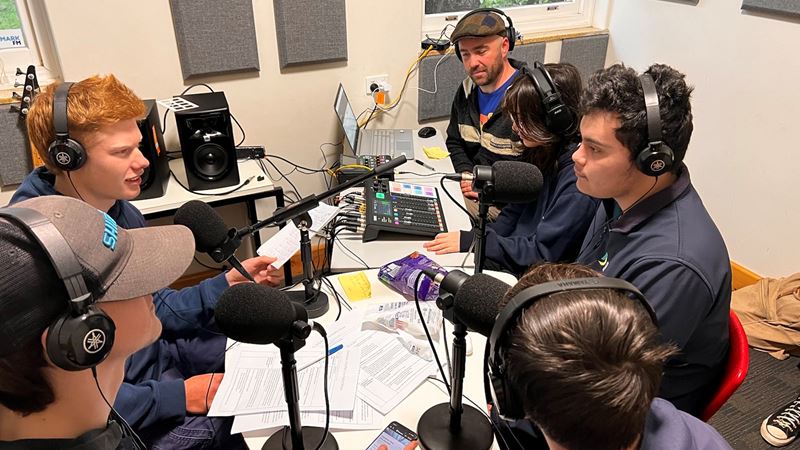
Approach
Once the station was live, Station Manager Matt Sivyer saw an opportunity to partner with schools and build confidence, develop life skills, and celebrate the young people of Denmark. The resulting school engagement program would allow local school students to connect with the broader community and get involved in Denmark FM. Matt believed through the provision of equipment and training, students could learn writing, communication and presentation skills that would enable them to become active contributors to the radio station. In turn, the station would be a platform for young people to share their stories and perspectives beyond their school communities. The Denmark FM team also believed that by working with students, engagement with the station would increase across the wider community.
Portable equipment was purchased to help Denmark FM presenters deliver training programs and content from outside of the studio. This was key not only to working with schools, but also improved accessibility for community members who were interested in presenting, but could not attend the station in person for a range of reasons.
Impacts and outcomes
The school engagement program was delivered to four schools in the Denmark region, providing training for teachers and students in the creation of content for radio, interviewing skills, and presenting music. Beyond the more technical skills specifically relating to radio production, students learnt highly transferrable life skills including communication and planning techniques. Through the creation and sharing of media in a structured, safe, accessible, and positive way, teachers reported an increase in student confidence in sharing their stories and presentation skills.
Providing participating schools with equipment has created flexibility in delivery, allowing schools to create broadcast quality recordings at times and occasions suitable to them. The program was also structured in a way that ensured students who live with disability or learn in different ways were involved. This was demonstrated when one student, who was struggling to read a script, was supported by the Denmark FM team and other students to present her chosen piece of music for broadcast. The student was thrilled with the result and hearing her work on air alongside that of her classmates.
Since the original school engagement program in 2021, the school partnerships have evolved into what is now known as Denmark FM’s Schools on Air project.
122


Students involved in the Term 1 and 2 2023 program.
4


Schools participating in the programs in 2023, including one high school and three primary schools.
3


Classes going live-to-air with their own 30-minute lunch time programs.
Schools on Air worked with local students during Terms 1 and 2 of 2023, with the content created used to produce a 30-minute, weekly radio program. This program plays twice each week, with 14 episodes created by September 2023. At the time of publication (September 2023), the Schools on Air episodes are the highest-restreamed programs produced by Denmark FM.
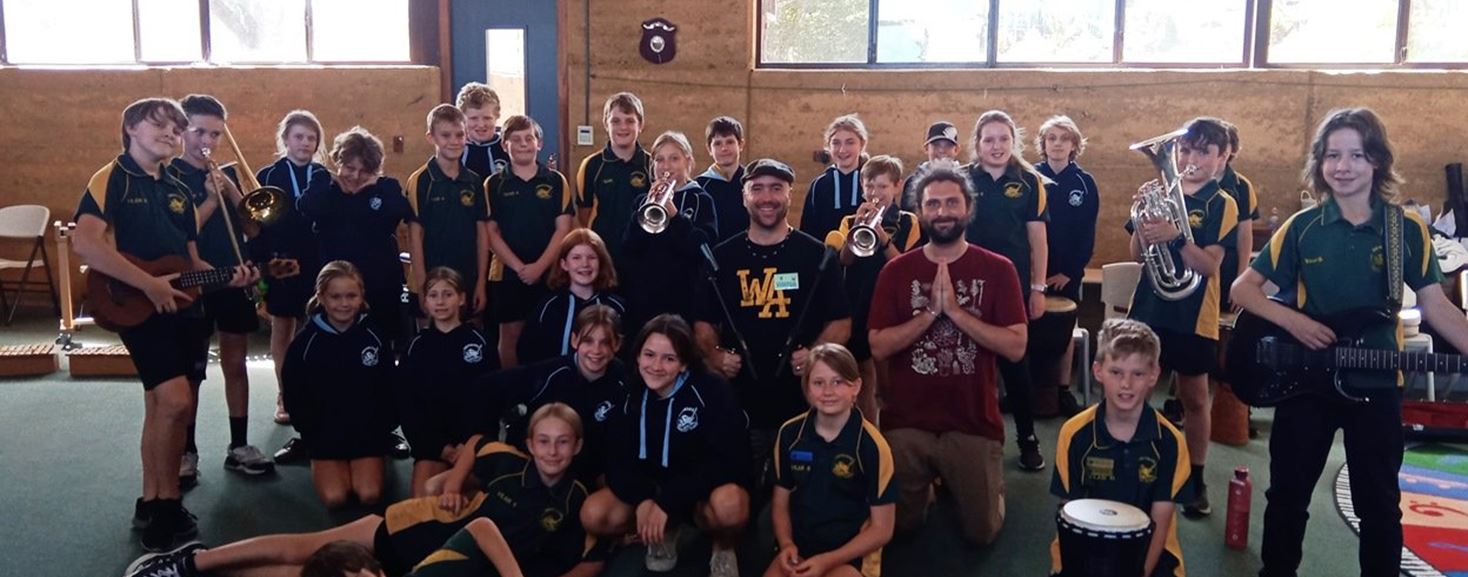
What worked
Multiple perspectives on equipment
Denmark FM held discussions with multiple suppliers to get a range of perspectives and solutions on how their brief could be met. This ensured the equipment purchased was fit-for-purpose for the specific requirements of the project.
Community buy-in
Identifying the key project partners and getting their ‘buy-in’ well in advance of the project commencing laid a strong foundation for the initial program, and its continued development into Schools on Air.
Flexibility and creativity in the use of resources
One of the five local schools originally set to take part in the program in 2021 chose not to participate. This change of plans created an opportunity for Denmark FM to reimagine how they would use the equipment that had already been purchased and provide it to a local woman living with disability who was not easily able to attend the station to produce a show. The kit was used to help her contribute to Denmark FM, reduce feelings of isolation, and connect with her community. The flexibility and creativity in thinking demonstrated a way to engage more broadly with the Denmark community.
Key challenges
COVID-19 Restrictions
Engagement with schools took longer to gain momentum than originally anticipated due to COVID-19 restrictions that meant Denmark FM volunteers were unable to visit schools.
REFERENCES
- Community Broadcasting Association of Australia, About Community Broadcasting. 2023 [cited 21 August 2023]; Available from About Community Broadcasting | Community Broadcasting Association of Australia (cbaa.org.au)
- Denmark FM, History. 2023 [cited 21 August 2023]; Available from Denmark FM - About
Learn about wellbeing
Understand how your community is going to help you to better target and plan your project.
Ready to plan your project?
Understand your vision, plan your impact and report on the outcomes of your project with three easy interactive tools in the Community Impact Planner.
Acknowledgement of Country
The Western Australian Community Impact Hub acknowledges and pays respect to the Traditional Owners of the land on which we are based, the Whadjuk people of the Noongar Nation and extends that respect to all the Traditional Owners and Elders of this country. We recognise the significant importance of their cultural heritage, values and beliefs and how these contribute to the positive health and wellbeing of the whole community.
